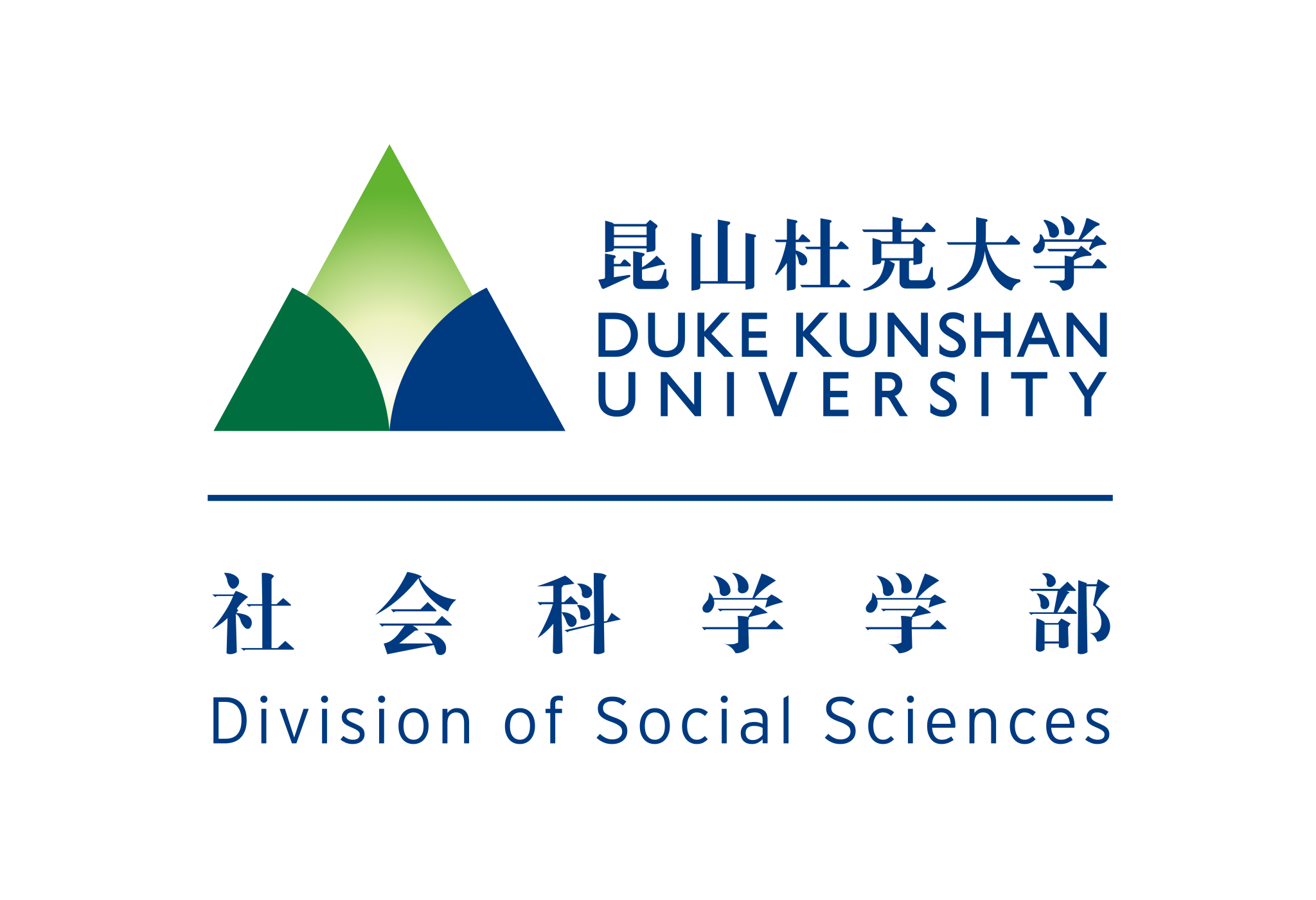
01 Why DKU?
When I was in high school, I coincidently saw the option of “Take a virtual tour” on the DKU website and the photos of students from different countries walking freely on the campus. Then, I saw the news of DKU’s summer campus open day and decided to sign up for a visit. The moment I stepped into the campus, I felt that I had walked into a long-awaited, free and vast world full of equality, communication and integration. I was deeply attracted by the diverse student and faculty groups of DKU. Everyone spoke different languages and discussed different topics, but they were all full of enthusiasm for academic exploration and created a space for different cultures to coexist.
02 Stories About My Major And Me
In my freshman year, I took Professor Wang Mengqi’s course “Home, House and Housing: An Anthropological Exploration of Human Dwelling”. This class made me realize that “home” is not just a physical building, but a concept that has been changing throughout history, a convergence point of different social relations and a part of political economy. After re-understanding this concept, Professor Wang led us to explore various social issues related to it, such as housing affordability and homeless living conditions.
Through this class, I learned that anthropologists conduct fieldwork to explore and repair specific social concepts or theoretical frameworks. From the literature I read in class, I saw that a group of anthropologists have been immersed in field sites for a long time, observing, experiencing, and understanding the daily lives of local communities and residents, thereby obtaining the cornerstone for solving real problems. This made me interested in Cultural Anthropology, and I began to think about and try to deconstruct things or concepts that I am accustomed to.
After choosing Cultural Anthropology as my major, DKU’s Anthropology professors and their diverse academic research directions helped me learn in detail how culture, as a grand concept, specifically affects all aspects of human society, such as religion, gender cognition, nature and economy. Cultural Anthropology has given me the ability to “think like a fish”, and I have also experienced the significance of dialogue from field research.
03 Significant Research Experience
During my undergraduate studies at DKU and Duke, I participated in multiple projects in the fields of Cultural Anthropology, Religious Studies, and Public Policy, and gained a lot of field research experience.
Starting from my freshman year, I conducted two years of field research and interviews for an interdisciplinary project (Models of Sustainable Agriculture) funded by the Peder Sather Center at the University of California, Berkeley, under the guidance of Dr. Robin Marsh, Dr. Kathinka Furst, and Dr. Heidi Wigg. My team members and I combined field research and policy analysis to summarize the drivers and mechanisms of each sustainable agricultural model in the United States, Norway, and China. When our investigation was hindered by the COVID-19 pandemic, we immediately added the pandemic to our research to study its impact on sustainable agricultural practices. The papers I co-authored with various Professors were also published in academic journals.
During my sophomore year, I also joined Professor Wu Keping’s project team to conduct field research to map the demolished Taoist temples in Kunshan, documenting the geographical and spiritual transformation of local religious spaces in the context of rapid urbanization. Professor Wu Keping has a wealth of field research experience. When I look back at my field notes, I can always draw fresh perspectives from her and gain more possibilities for analyzing data. At the same time, Professor Wu Keping often shares with me the most cutting-edge anthropological articles and examples of anthropologists’ actions in the field, helping me understand what anthropologists really care about the people in the field and learn the wisdom of anthropologists in balancing multiple identities.
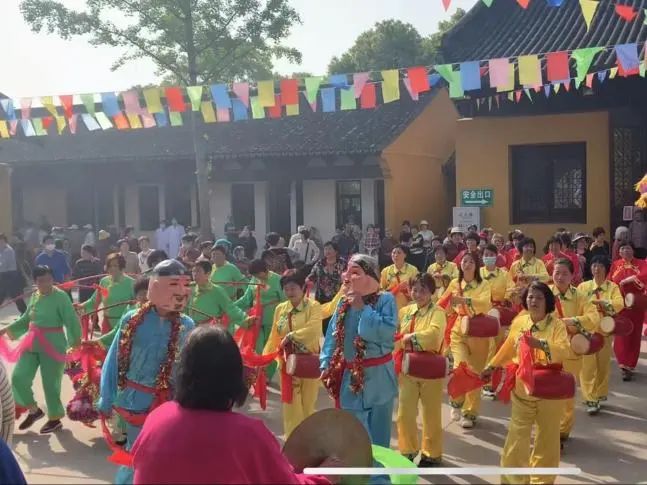
Field research at a local temple fair
During my undergraduate studies, I also completed my Signature work: Catholic fishing groups in the urbanization process in Jiangnan with the help of Professor Wang Mengqi, Professor Wu Keping and CSCC. During a field survey during the summer vacation of my sophomore year, I accidentally went to a very special fishing village. The locals mainly believe in Buddhism and Taoism, but I saw a Catholic church with a spire facade by the river. Different religions coexist in nearby neighborhoods, and the contest between faith and space inspired my desire to depict the multi-religious landscape in the Yangtze River Delta, especially to understand the unique identity formation process of Catholic fishermen, which is different from traditional fishermen. My signature work ultimately focused on exploring how the Catholic fishing community reproduced its religious and ethnic identity in space and spirit after fishermen came ashore under the drive of environmental protection policies. This research inspired my passion for exploring China’s local religious landscape from an anthropological perspective and the different cosmologies among different religious groups and helped me establish the academic direction that my graduate students want to delve into.
04 Harvest During Scientific Research
When I was studying the relationship between aging and mental health in the epidemic era with Professor Wu Keping, I went to Dayu New Village near the school to try to understand the mental state of the local elderly. But when I asked, I found that they did not understand the concept of “mental state” in our context. They are always sharing their lives at home, their collective lives after giving up their peasant identities and demolition, and their medical insurance or physical conditions; the concept of “mental state” has become a very localized concept with their descriptions. This prompted me to think deeply: From what perspective should we understand the plight of the elderly? How should we measure the mental state of the old rural elderly after demolition?
The conversations in the field are either full of strong emotions or plainly narrating daily life. These conversations will constantly change my own experience of seeing the world and my inherent stereotypes. In the process of field research, researchers also have different degrees of connection with the researched, and my identity and research direction will continue to change accordingly. This flexible methodology is the cornerstone of anthropology, and the charm of field research lies in this.
Through my own field research experience, I have come into contact with different local groups in Kunshan and experienced different parallel lives. I hope to share the charm of field research with my classmates, so that everyone can really walk into the local community of Kunshan and record some local voices and stories. This idea coincides with the founding purpose of the DKU Campus Engagement Department, which aims to connect the DKU community with the surrounding communities of Kunshan through the method of “learning by doing”. I also look forward to seeing the school hold more activities in the future, so that more junior students can walk out of the classroom and into reality.
05 Plans After Graduation
After graduation, I plan to pursue a master’s degree in religious studies at Harvard University. Harvard Divinity School has many special projects and teaching resources that can connect world religion research with local community life. The project also has many sub-directions of religious research, allowing me to continue my undergraduate research interests and anthropological methodology into my master’s studies. After graduating from my master’s degree, I hope to continue doctoral studies.
06 Why Love DKU?
DKU has rich academic resources and a group of Professors, which provides a platform for undergraduates to participate in scientific research projects and truly understand the whole process of producing scientific research results. All professors are very happy to provide assistance, making scientific research warm, interactive and supportive. At DKU, the distance between professors and students is very small. When you have a research idea or write a relatively simple research plan, you can find a professor to discuss and make your ideas come true. The interdisciplinary characteristics of DKU also make the barriers between different disciplines begin to disappear. There is a possibility of connection between any disciplines and produce new scientific research results. Such an environment encourages students to dare to think and do.
In addition to study and research life, DKU’s social atmosphere is very tolerant and extracurricular life is also very colorful. Every student at DKU has the opportunity to be completely himself or herself and do what he or she likes. The inclusive student community also makes it easy for everyone to find like-minded partners.
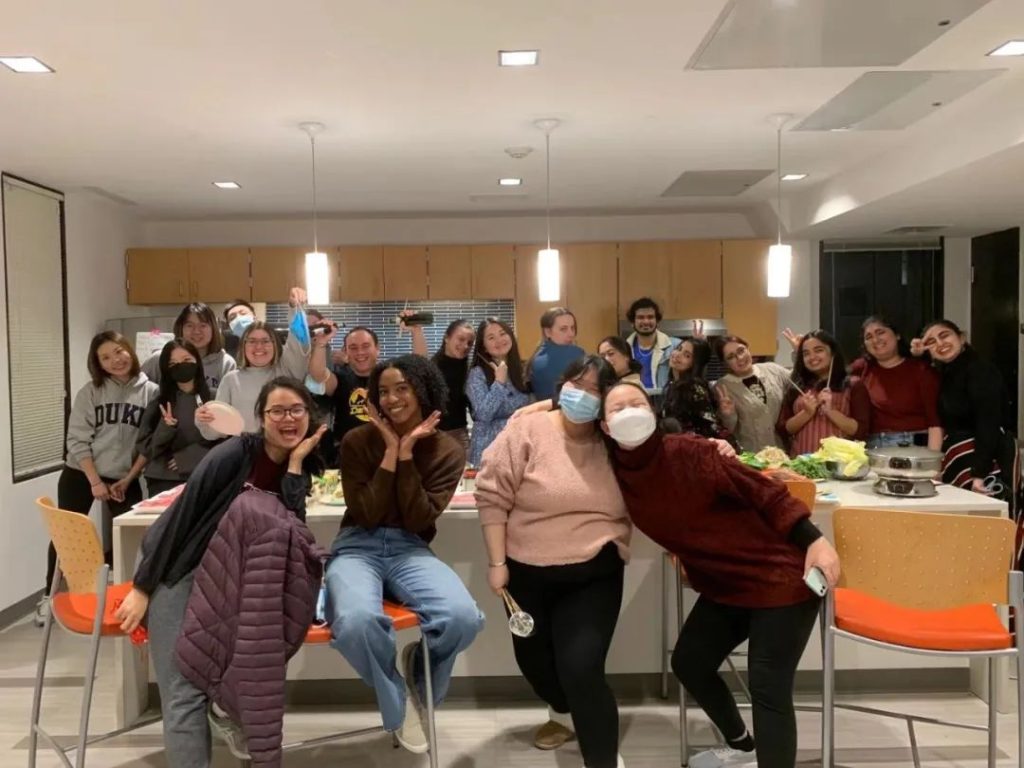
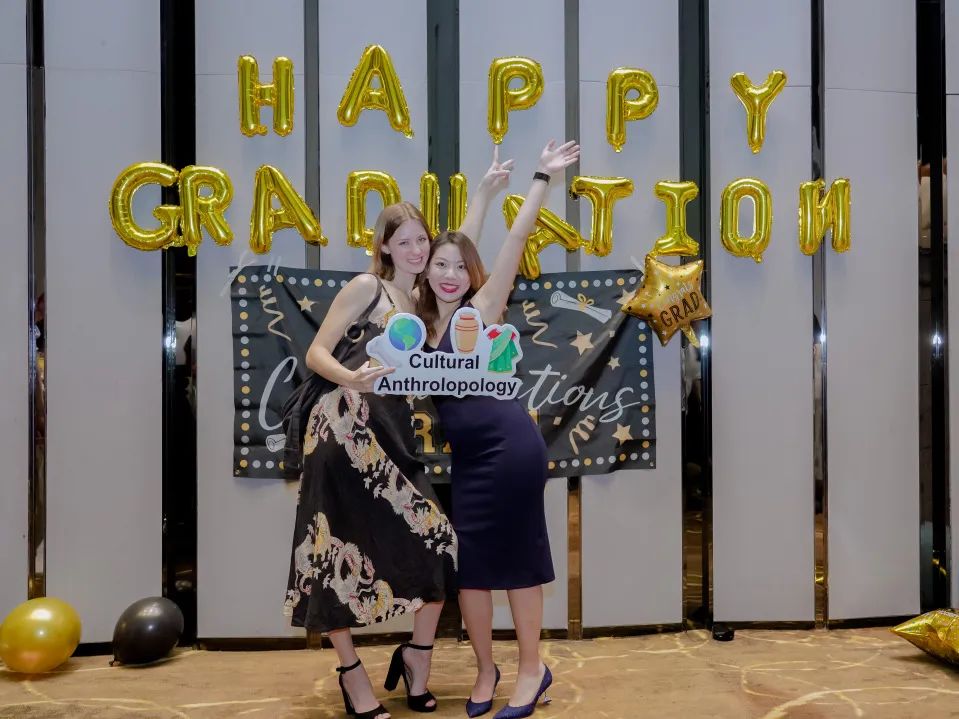
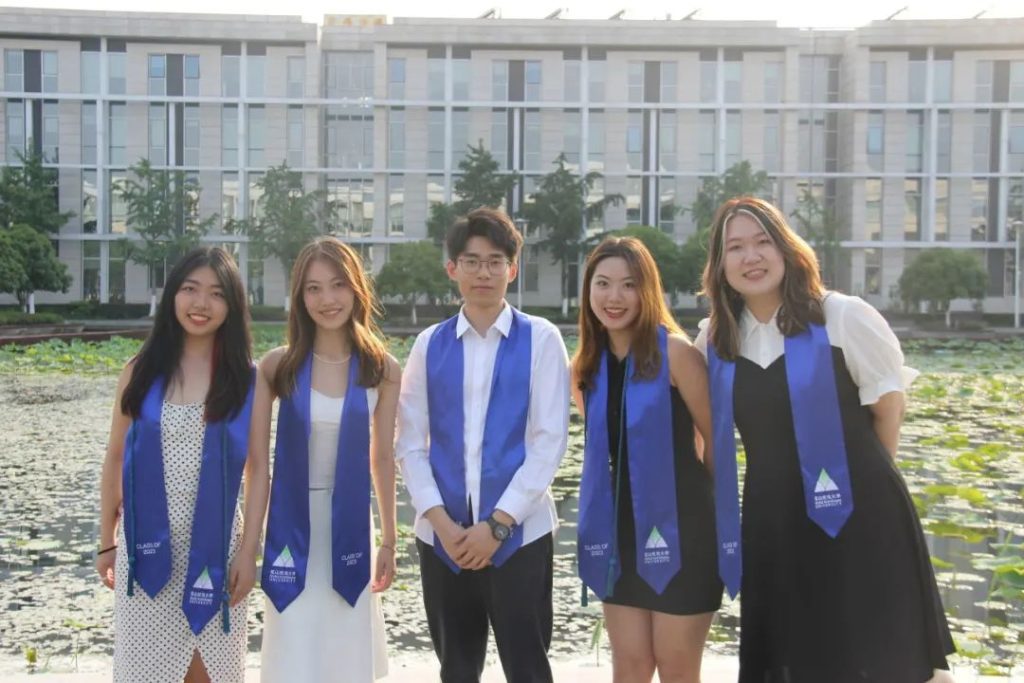
Photo with friends at DKU/Duke
07 Suggestions To Fellow Students
There are many unknown stories hidden in the daily life. Maintain empathy and curiosity, and understand yourself and others.
Translated and Edited by Zhenyu Tian, Class of 2027
